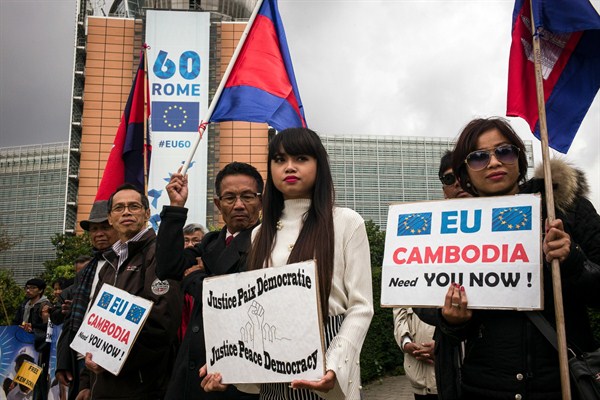Cambodia has made significant progress on reducing poverty since its transition to democracy in the 1990s, yet millions still remain at risk of falling back into destitution given the nation’s shaky dependence on foreign money, both from trading partners and aid donors. That’s why many Cambodians will be desperately hoping the European Union’s recent threat to suspend valuable trade preferences does not actually come to fruition.
In early October, the EU announced that it was formally looking into removing Cambodia’s special trade status, known as “Everything But Arms,” which gives developing nations duty-free access to export into Europe. European Trade Commissioner Cecilia Malmstrom said she told Cambodia the EU had launched a six-month review. That was in response to Cambodia’s sharp democratic decline in the lead-up to a pivotal election in July, which Hun Sen—the country’s autocratic ruler, in power since the 1980s—ruthlessly manipulated in his favor. Cambodia’s once-free press has been further silenced; more dissidents have been detained; the increasingly popular opposition party, the Cambodia National Rescue Party, was dissolved; and its leader, Kem Sokha, was arrested, then released on house arrest last month. Needless to say, Cambodia is now a one-party state.
With nongovernment organizations constrained, social media channels monitored and China on standby to support Hun Sen, the international community’s usual gambit of stoking civil society movements and withdrawing aid were ineffective instruments. But with some 40 percent of Cambodian exports to the EU, worth almost $700 million per year, under threat from the removal of its duty-free trade status, there was always a credible, yet extraordinary, tool waiting to be used.

